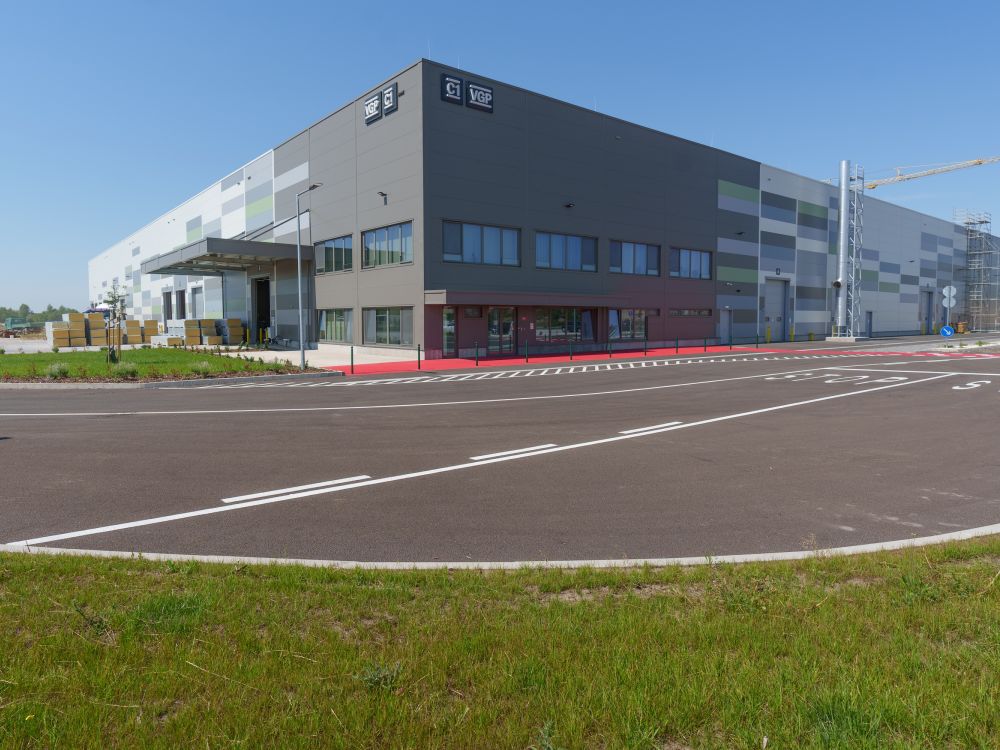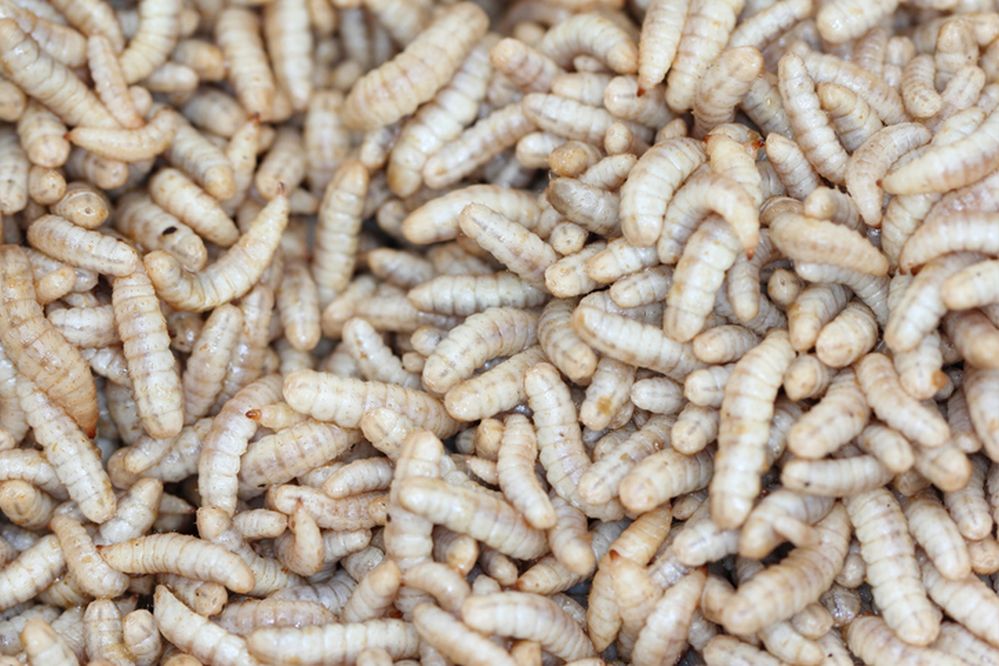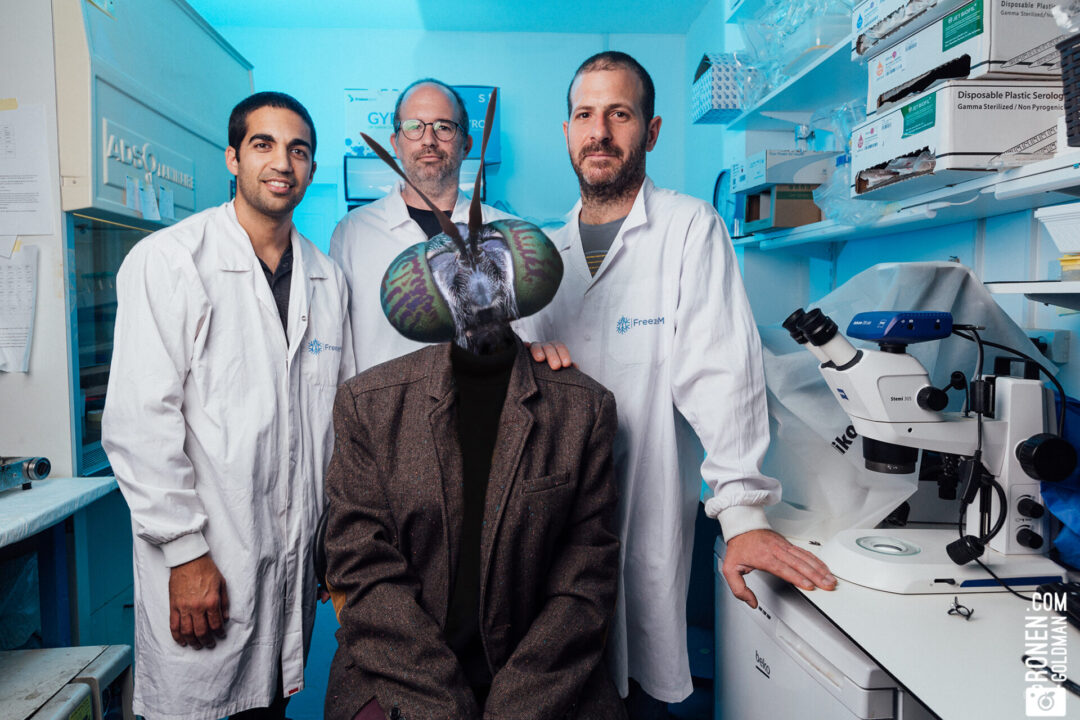Hungarian insect farmer Agroloop is gearing up to open a first-of-its-kind €20 million ($21.2 million) insect farm with fully outsourced breeding, providing a “glimpse into the future” of insect ag in which breeding is decoupled from farming, says Israeli partner FreezeM.
While insect ag facilities are typically vertically integrated with breeding, farming, and processing operations housed together, Agroloop’s new black soldier fly (BSF) facility near Budapest airport does not include a breeding unit, an operation it has entirely outsourced to FreezeM.
FreezeM will supply Agroloop with weekly supplies of BSF neonates (eggs that have just become larvae that it has induced into a state of suspended animation) from a breeding hub in Germany the company operates with insect breeder Hermetia.
The “paused” BSF neonates (brand name: PauseM), which can be shipped at room temperature and have a guaranteed survival rate of 90%+ over 14 days, are claimed to deliver consistently higher yields that their regular counterparts once they start feeding.
“The next generation of insect farming requires innovation and pioneering solutions to ensure efficient operations and financially viable production. Our collaboration with FreezeM enables us to meet growing global demand and drive business growth.” Rajmond Percze, cofounder and CEO, Agroloop

‘Suspension gives an advantage such that the larvae just grow faster and better’
“People have told us that they have their own genetic lines adapted to their waste streams and they’ve been breeding them for years,” FreezeM cofounder and CEO Dr. Yuval Gilad told AgFunderNews. “And then they try our suspended neonates and ask why are your larvae growing better on our feed than our own larvae?
“We don’t actually know the reason why, but suspension gives an advantage such that the larvae just grow faster and better, enabling farmers to increase production capacity by replacing in-house breeding with PauseM suspended neonates.”
To further enhance productivity, the parties have developed an automated deployment system capable of inserting up to 4,000 PauseM units, or 200 million BSF neonate larvae, into a production line every day, said Gilad.

‘The era of super-fancy facilities that do everything is pretty much over’
But what if something were to happen to FreezeM? Wouldn’t Agroloop and others contemplating outsourcing breeding be left exposed?
While this is a legitimate concern, FreezeM has spent years testing, refining, and optimizing its operation so insect farmers looking to build new facilities or expand existing ones can tap into a market-ready solution, said Gilad. That said, there are other players now offering outsourced breeding services.
Agroloop, for example, conducted “very detailed testing and compared us to other suppliers, and we believe chose us because our product is better than other solutions on the market,” said Gilad. “But of course, if we were to suddenly disappear, others have adopted our model, which gives our clients confidence that they could keep operating.”
First-generation insect farmers who are wary of relinquishing breeding can also operate a hybrid model where they have their own colony but can buffer production by working with FreezeM, added Gilad, who founded FreezeM as a spin-off from the Weizmann Institute of Science with Dr. Yoav Politi (VP, R&D) and Dr. Idan Alyagor (CTO) in 2018.
“The era of super-fancy facilities that do everything is pretty much over. It’s too expensive. But it’s not just the cost and the extra space you need. It’s the skillset. There are not many entomologists out there with the knowledge and capabilities to develop these kinds of operations.
“In future I believe we’ll see insect operations built with at least five times less investment that can ramp up at least five times faster as companies start to work with established providers of all the various systems [for example Agroloop is working with WEDA on conveyors to ensure reliable transport of substrates, Bühler’s rearing tech, and Reinartz’s expertise in insect larvae dry processing].”
He added: “And when you add to that our automated system [for dispensing exact number of neonates into the feed substrate], you can save even more on operating costs and personnel.”

Smaller factories, faster ramp up times
While some insect ag pioneers have burned through large amounts of cash without a great deal to show for it yet, the second wave is developing lower-cost approaches to scaling up, with the industry as a whole likely to follow mature animal ag markets in which breeding, farming, and processing are run separately, predicted Gilad.
“I think waste management companies may lead this field in the future and we’ll see smaller factories processing [post-consumer] waste [as feed for bugs] once that is permitted [by regulators in food and feed markets]. We see many of those projects now in the planning phase.”






